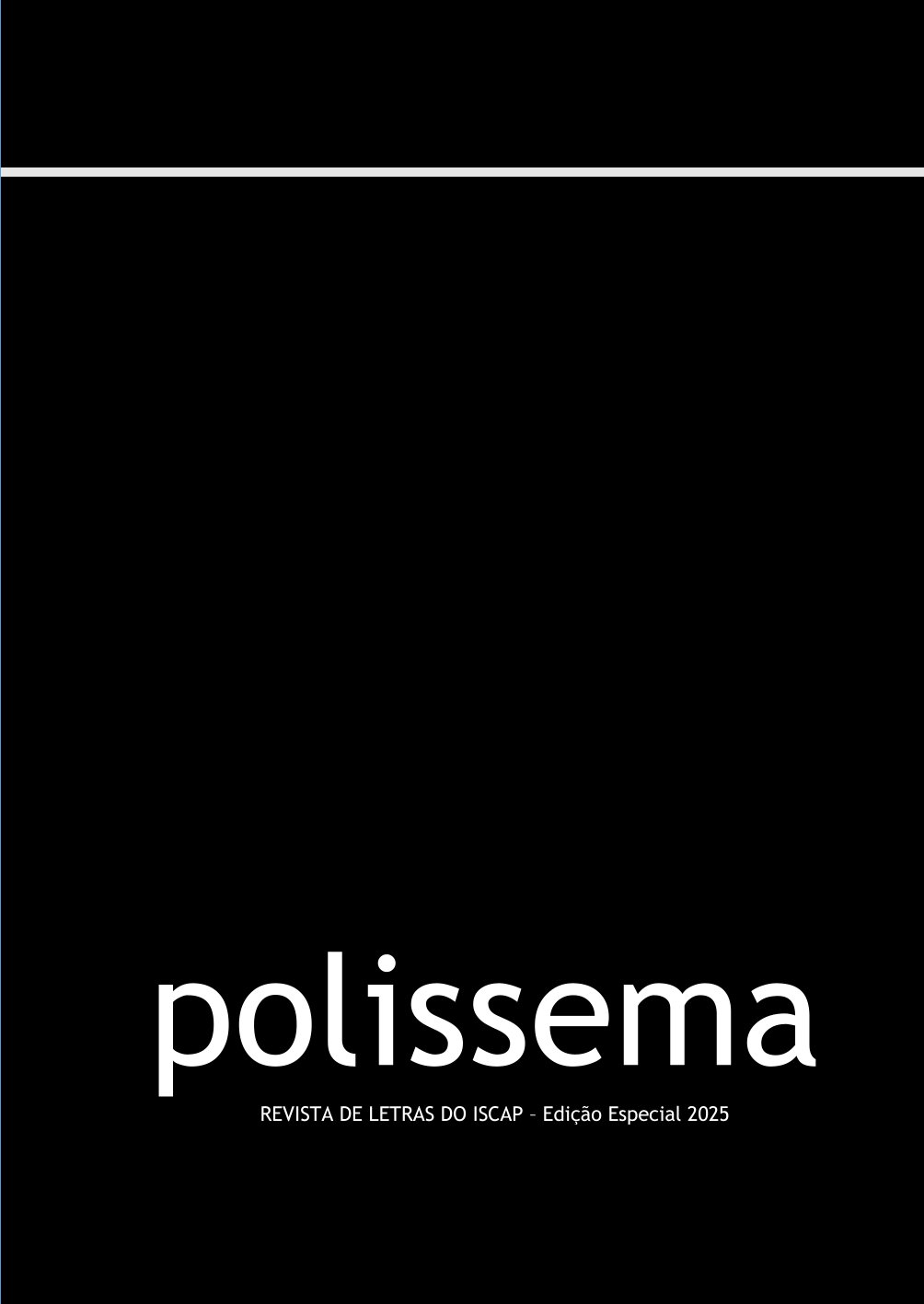A TRANSLATION PROPOSAL FOR LIVRO, A NOVEL BY JOSÉ LUÍS PEIXOTO
DOI:
https://doi.org/10.34630/polissema.v1i25.6096Keywords:
José Luís Peixoto, Livro, translation, foreignisation, domesticationAbstract
The aim of this article is to present and comment on the main aspects of my translation proposal for the novel Livro by the Portuguese author José Luís Peixoto, published in 2018 by the Mexican publishing house ‘Arlequín’. As part of the contextualisation of the translated work, we will talk in a general way about the novel, its importance in the world of Lusophone literature, its style and its characters as it is relevant for the understanding of the implications this had on the translation process.
A brief review will be made on the methods of “Domestication” and “Foreignization” of a translated text, according to the theories of Friedrich Scheiermacher, Walter Benjamin, Antoine Berman, Lawrence Venuti and Boris Schnaiderman, taken as a basis to support final decisions regarding the treatment of some translation difficulties and problems. The main characteristics of this proposal will be presented, emphasising the way in which the foreignising and domesticating elements that make it up fulfil certain functions within the fiction and are significant in the impact produced by its reading, highlighting the different translation problems that arose in the work process, as well as the strategies used to deal with them. In addition to offering an overview of the most significant aspects that make up the translation proposal for the novel Livro by José Luís Peixoto, this paper will reflect on the link between the above-mentioned theories and a practical translation experience.
References
Academia Mexicana de la Lengua.(s.f.). Cagar. En Diccionario del español de México. https://dem.colmex.mx/Ver/cagar
Academia Mexicana de la Lengua.(s.f.). Coyón. En Diccionario del español de México. https://dem.colmex.mx/Ver/coyon
Benjamin, W. (2017). La tarea del traductor. (H. C. Hagedorn, Trad.). Ediciones Sequitur.
Berman, A. (2013). A tradução e a letra ou o Albergue do longínquo. (M.-H. Torres, M. Furlan y A. Guerini, trads.) Copiart Editora.
Buarque de Holanda Ferreira, A. (1999). Novo Aurélio, O dicionário da Língua Portuguesa. Nova Fronteira.
Corbeil, J. C. y Archambault. A. (2003). Le Nouveau Dictionnaire Visuel multilingue a été conçu par. Quebec Amérique.
Diccionários Porto Editora. (s.f). Borrar. En Infopédia. https://www.infopedia.pt/dicionarios/lingua-portuguesa/borrar
Dicionários Priberam.(s.f). Correnteza. En Dicionário Priberam da Língua Portuguesa. https://dicionario.priberam.org/correnteza
Dicionários Priberam.(s.f). Borrar. En Dicionário Priberam da Língua Portuguesa. https://dicionario.priberam.org/borrar
Dicionários Priberam.(s.f). Miúfa. En Dicionário Priberam da Língua Portuguesa. https://dicionario.priberam.org/Mi%C3%BAfa
García Benito, A. B. et al. (s.f.). En Babelite, Dicionário multiligue de expressões idiomáticas. Bandulho. http://babelite.org/front/expressions/24877.
García Yebra, V. (1986). En torno a la traducción. Teoría crítica, historia. Gredos.
Houaiss, A. (2009). Dicionário Houaiss da língua portuguesa. Editora Objetiva.
Hurtado, A. (2011). Traducción y Traductología. Introducción a la Traductología. Cátedra.
Moya, V. (2010). La selva de la traducción. Teorías Traductológicas contemporáneas. Ediciones Cátedra.
Peixoto, J. L. (2010). Livro. Quetzal.
Peixoto, J. L. (2011). Libro. (C. de Acevedo, Trad.). El Aleph.
Peixoto, J. L. (2018). Libro. (D. Alcaraz, Trad.). Arlequín.
Real Academia Española. (s.f). Buche. En Diccionario de la lengua española. https://dle.rae.es/buche?m=form
Real Academia Española. (s.f). Chacota. En Diccionario de la lengua española. https://dle.rae.es/chacota?m=form
Schleiermacher, F. (1996). Sobre los diferentes métodos de traducir. In D. López García, Teorías de la Traducción, Antología de Textos (pp. 129-157). Universidad de Castilla-La Mancha.
Schnaiderman, B. (2015). Tradução, ato desmedido. Perspectiva.
Venuti, L. (1995). The Traslator's Invisibility. Routledge.
Downloads
Published
How to Cite
Issue
Section
License
Copyright (c) 2025 POLISSEMA – ISCAP Journal of Letters

This work is licensed under a Creative Commons Attribution-NonCommercial-NoDerivatives 4.0 International License.


